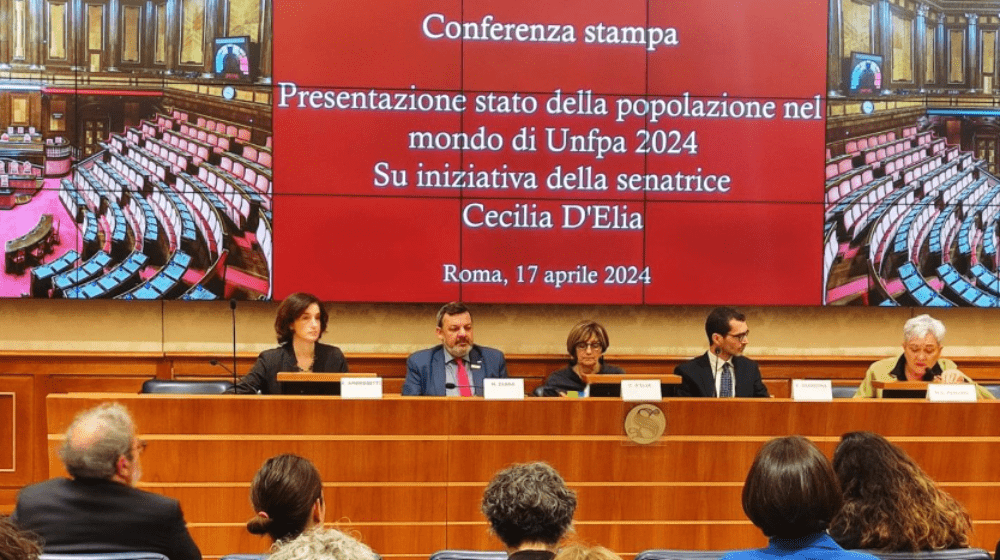Rome, Italy - April 17, 2024 - Today at the presentation of the State of the World Population 2024, hosted by Senator Cecilia D’Elia, UNFPA unveiled the "State of World Population 2024" report, entitled "Interwoven Lives, Threads of Hope." This report deeply explores the severe inequalities affecting sexual and reproductive health rights globally, highlighting the persistent impact of discrimination based on race, ethnicity, and gender.
"In the space of a generation, we've made formidable progress: reducing the unintended pregnancy rate by nearly one fifth, lowering the maternal death rate by one third, and securing laws against domestic violence in over 160 countries," said Dr. Natalia Kanem, Executive Director of UNFPA. "Yet, our mission is far from complete. Inequities within our health systems are deepening, and our commitment must now focus on reaching those who are furthest behind."
During the opening speech, Massimo Diana, UNFPA Representative in Ukraine, emphasized the severe conditions under which reproductive health services are delivered in conflict zones, particularly in Ukraine. "Last month in Kherson, despite the constant shelling, our teams provided crucial prenatal care. Women do not stop being pregnant because of war, and their needs are acute amidst such crises," stated Diana. "In these dire conditions, our work becomes even more vital, offering hope and tangible support in the darkest of times."
The report highlights persistent global challenges, noting that approximately 800 women die daily from preventable causes related to pregnancy and childbirth, predominantly in conflict-affected and impoverished regions. It also draws attention to the critical need for increased funding and better technology to improve healthcare delivery and outcomes.
The launch also served as a platform to reaffirm UNFPA's commitment to the Cairo Declaration on its 30th anniversary, underscoring that sustainable development hinges on upholding human rights, including sexual and reproductive rights and gender equality.
UNFPA calls on leaders, communities, and individuals worldwide to join in solidarity and increase investments to tackle these profound challenges, aiming for an equitable future where every individual's health rights are protected and valued.
For more information on progress and challenges in the Eastern Europe and Central Asia region, visit the regional State of World Population highlights page.


